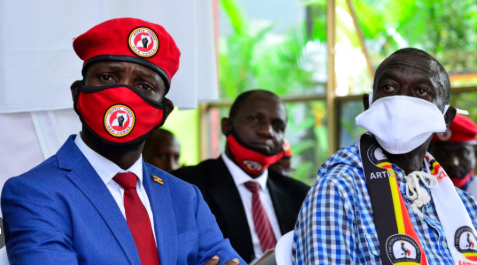
As Uganda’s political landscape evolves, a growing debate has emerged over leadership succession within opposition parties.
While these parties frequently criticize the ruling National Resistance Movement (NRM) and President Museveni for over 40 years in power, questions are now being raised about whether opposition leaders are any different.
A closer look at major opposition parties reveals that many of their leaders have remained at the helm for extended periods.
Democratic Party (DP) President Norbert Mao has led for 15 years, while Jimmy Akena has served as Uganda People’s Congress (UPC) President for 10 years.
Forum for Democratic Change (FDC) leader Patrick Oboi Amuriat has been in office for seven years, while National Unity Platform (NUP) President Robert Kyagulanyi has led for five years. Conservative Party (CP) President John Ken Lukyamuzi has been in charge for over 20 years, and Asuman Basalirwa has led the Justice Forum (JEEMA) for more than 15 years.
Despite advocating for democracy and good governance, these prolonged tenures have sparked concerns about whether opposition parties are truly committed to internal democracy or merely replicating the power entrenchment they criticize.
Calls for Internal Reform
Political analysts argue that internal reforms are necessary to ensure smooth leadership transitions.
Dr. Lawrence Sserwambala, Executive Director of the Inter-Party Organization for Dialogue (IPOD), believes weak internal structures, rather than individual leaders, are the root of the problem.
“The issue lies in the party constitutions, not necessarily the leaders,” he said, emphasizing the need for reforms that promote leadership rotation.
Prof. Rogers Barigayomwe supports amending party constitutions to introduce term limits, arguing that many opposition leaders have become “career politicians” who prioritize survival over party growth.
“These leaders are simply justifying their prolonged stay in power. If the opposition wants to set an example, they must first practice what they preach by limiting terms in their own parties,” he said.
However, some within the opposition reject the idea of term limits. DP’s Henry Kasacca argues that leadership change for its own sake could weaken parties rather than strengthen them.
“Parties need experienced leadership to build strong institutions. Term limits may not necessarily help,” he explained.
Among opposition parties, NUP has taken a step toward reform by amending its constitution to introduce term limits, although this provision is yet to be officially implemented. This move highlights the ongoing internal struggle between maintaining continuity and allowing room for fresh leadership.
As the debate intensifies, a key question remains: Are Uganda’s opposition parties truly committed to democratic ideals, or are they following the same path of indefinite leadership as the ruling party? Time will tell whether they will embrace change or continue holding onto power indefinitely.
https://hoimapost.co.ug/male-deogratius-ugandas-opposition-parties-face-intensifying-leadership-succession-debate/
https://hoimapost.co.ug/male-deogratius-ugandas-opposition-parties-face-intensifying-leadership-succession-debate/ , hoimapost.co.ug
https://hoimapost.co.ug/male-deogratius-ugandas-opposition-parties-face-intensifying-leadership-succession-debate/ , https://hoimapost.co.ug/male-deogratius-ugandas-opposition-parties-face-intensifying-leadership-succession-debate/ ,
hoimapost.co.ug , https%3A%2F%2Fhoimapost.co.ug%2Fmale-deogratius-ugandas-opposition-parties-face-intensifying-leadership-succession-debate%2F